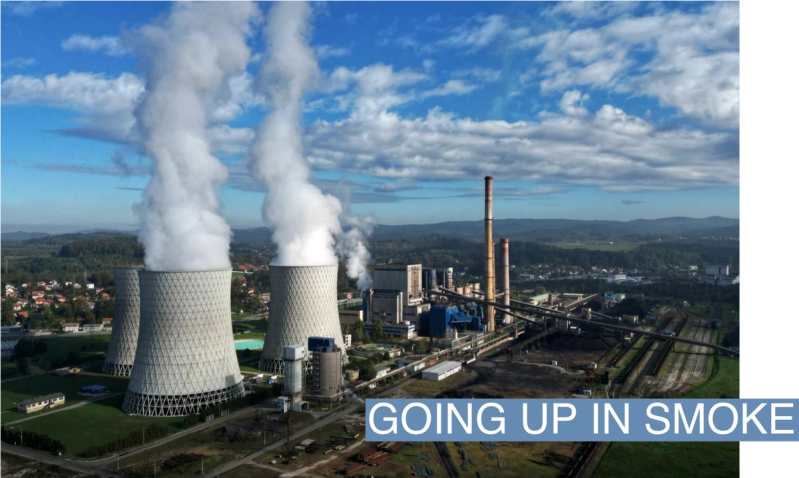The News
Countries have failed to make progress on national climate commitments in the past year, leaving the United Nations agency that tracks the efforts to acknowledge that the most ambitious of the goals set in the 2015 Paris agreement are now out of reach.
In a dire report released Thursday, the United Nations Environment Program said for the first time that it sees “no credible pathway” to limiting global warming to 1.5 degrees Celsius. Last year’s climate conference in Glasgow, Scotland, which ended with promises for more aggressive action, strained to say the goal could still be reached.
The lack of progress in the past year “leaves the world hurtling toward a temperature rise far above the Paris Agreement goal of well below 2 degrees,” the United Nations Environment Program said, using some of the most alarming language to date to describe the accelerating impacts of climate change.
The failure to slash greenhouse gas emissions incrementally over decades now means that, “Only a ‘root and branch’ transformation of our economies and societies can save us from accelerating climate disaster,” the U.N. said.
The grim assessment of the world’s efforts to fight climate change sets the stage for this year’s summit in Sharm el-Sheikh, Egypt, which is expected to be a contentious gathering as developed countries demand funding from developed countries to deal with climate impacts already wreaking havoc.
With its current national commitments, the world is on track to constrain global warming to 2.8 degrees Celsius, a level scientists say will trigger profound changes in the climate and ecological balance of the planet.

Bill’s view
The darkening assessment underscores the toll the COVID-19 pandemic and the war in Ukraine have taken on a critical part of the Paris agreement: the collective vow that countries would ramp up their commitments over time.
Ambitions have risen, but not nearly enough to limit warming to 2 degrees, the maximum amount scientists say can occur and still avoid the most severe fallout from the planet warming. The past year was outright “wasted,” in the words of the U.N., as the collective ramping up of efforts aims to shave less than 1% more off global emissions in 2030.
The impacts are already beginning to play out around the world. Much of Pakistan and parts of Africa and China experienced massive flooding in recent months, the western U.S. is experiencing its worst drought in 1,200 years and vast expanses of ice have broken away from melting glaciers in the poles.
Nations have long struggled to keep pace with the ambitious path they agreed to pursue at the close of the Paris conference, a gathering that breathed new hope into the climate fight. The annual U.N. emissions gap report measures the difference between what countries have promised to do against what scientists say is necessary to meet the Paris goals.
While the COVID-19 pandemic shutdowns initially slowed global emissions as economies stalled, those emissions came roaring back as the pandemic eased and normal life resumed in much of the world. The fight against the virus has drained budgets, tangled global supply chains, strained human resources and killed tens of millions of people.
Then Russia’s invasion of Ukraine plunged one of the most proactive regions in addressing climate change, Europe, into turmoil. The conflict has driven up global energy and food prices.
The one-two punch has put climate goals on the backburner as governments struggle to head off social unrest and even starvation.
Room for Disagreement
The U.N. report still holds out hope that warming could be limited to 1.8 degrees if — and it’s a very big “if” — the world embarks on a rapid systemic overhaul of the very underpinnings of our economies and societies.
It points to three areas: the energy, industrial, transport and buildings systems we use; the systems we use to produce food and water; and the financial system, which must be re-geared to provide the estimated $4-6 trillion that will be needed annually to accomplish those goals.
Inger Andersen, head of the U.N. agency that produced the report, concedes in the release announcing the report that an overhaul of this scale is a “tall, and some would say impossible, order.”
Yet there are some glimmers of such a transformation beginning. Renewable energy has passed a critical tipping point, especially solar and wind power, while other green technologies such as nuclear and geothermal energy, carbon capture and methane monitoring are advancing.
A report released this week by the World Resources Institute catalogued 40 agricultural, energy and other climate-related targets that, if met by 2030, still could get the world to 1.5 degrees.
While the world remains behind on all of them, “We have never had more knowledge, information and technologies than we have now to actually close that emission gap and make real progress,” said Sophie Boehm, one of the authors of the report.
The View From Sharm El-Sheikh
The COP27 summit, which begins Nov. 6, offers another chance for countries to raise their ambitions. But the conference is likely to dwell on whether, and how much, developed countries are willing to pay to compensate for the damage developing countries are disproportionately suffering from climate change and to help those countries adapt to the challenges that accelerating global warming present going forward.
That debate could also delay progress on addressing the underlying global emissions increases. Still, if the sharp differences between developed and developing countries can be channeled into increased aid that leverages more private investment in developing countries’ agriculture and clean energy infrastructure, it could propel further progress over the next year.
Notable
- The WRI report details the state of play across the full expanse of areas where efforts are being made to fight climate change, from food and agriculture to finance.
- Brookings Institution’s Robert Litan argues in Foreign Affairs magazine, that climate change has reached the point where radical measures are needed.

